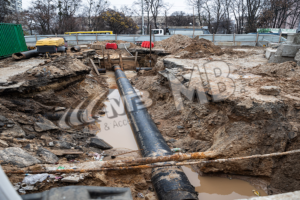We are all aware that groundwater is critical in delivering water for numerous reasons such as irrigation, drinking water, and industrial activities. Excessive groundwater, on the other hand, can be an issue, providing considerable issues in building sites, mining activities, and environmental cleanup efforts. This is where dewatering pumps come into play, providing effective groundwater management and cleanup options. MB Exports is the best Dewatering Pump Manufacturers & Suppliers in India. In this blog, we’ll look at how these pumps help optimizing groundwater and aid in environmental cleanup operations.
Let’s start with Dewatering Pumps –
Dewatering pumps are specially built equipment that drains groundwater from building sites, excavations, and other places where water accumulation might impede activities. They function by producing a pressure differential that allows water to be pushed out, managing the water table and keeping conditions dry.
Let’s take a closer look at the role of Dewatering Pumps in the groundwater management process:
Groundwater Control During Construction:
Waterlogged regions in construction projects can stymie progress and jeopardize excavation stability. Dewatering pumps are essential for eliminating groundwater and keeping a dry working environment. They keep water out of foundations, maintaining structural integrity and a secure and stable site for building activities.
Soil Stabilization:
Excessive groundwater can saturate the soil, reducing stability and increasing the danger of landslides and soil erosion. Excess groundwater may be drained using dewatering pumps, allowing the soil to restore its strength and stability. This is especially crucial in projects involving excavations, deep foundations, and slope stabilization.
Groundwater Remediation:
Dewatering pumps are used in environmental remediation operations to recover contaminated groundwater from polluted places. Dewatering pumps help restore groundwater quality by continually removing polluted water and preventing toxins from spreading to nearby regions.
Let us now go over the benefits as well as the drawbacks:
Increased safety:
Dewatering pumps reduce the risks associated with operating in wet and unstable situations. They lessen the likelihood of accidents such as slips, falls, and equipment failures by keeping dry conditions.
Cost reductions:
Effective groundwater management with dewatering pumps can result in significant cost reductions in construction projects. Project schedules can be optimised by avoiding delays and decreasing the need for expensive dewatering methods, resulting in lower labour and equipment costs.
While dewatering pumps are necessary for groundwater management, their operation can have environmental consequences. To ensure that extracted water is treated before release, suitable sediment and filter systems must be used. Compliance with local legislation is required to avoid negative effects on adjacent ecosystems.
Conclusion
Dewatering pumps are essential to groundwater treatment and management. These pumps have the power to facilitate efficient and safe operations in waterlogged locations, from managing water tables during construction to enabling environmental cleanup initiatives. However, it is critical to evaluate the environmental impact and execute suitable mitigation measures.
By utilising the power of dewatering pumps, it is possible to achieve a balance between the benefits of groundwater and the obstacles that it may provide in many sectors and projects. MB Exports, a leading Dewatering Pump Manufacturers in India, is committed to offering high-quality, efficient, and dependable pump solutions that help to successful groundwater management and environmental sustainability.
Read more about the Advantages and Disadvantages of Centrifugal Pumps (In Wastewater Treatment).




